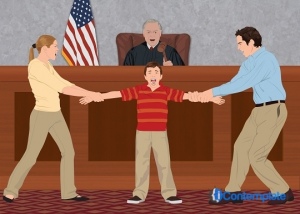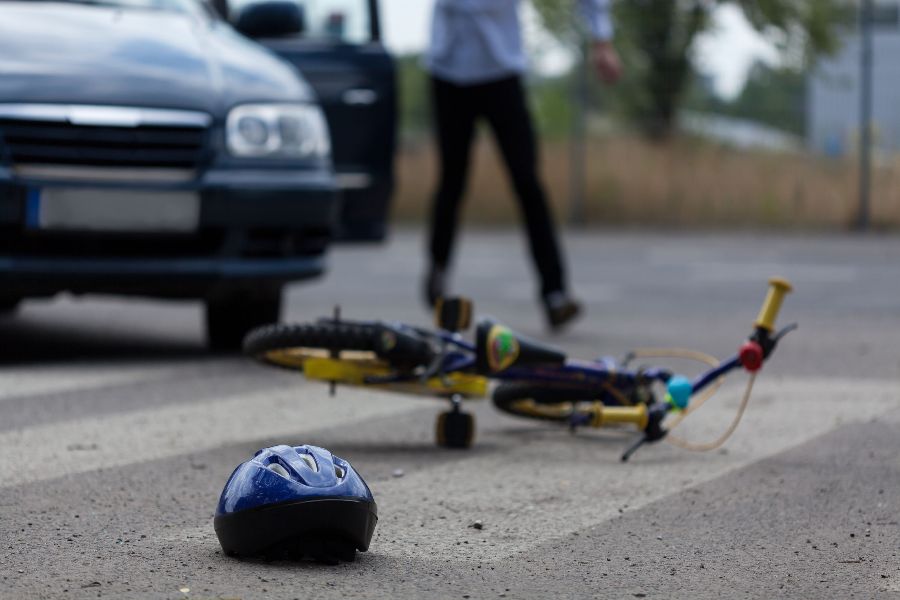With the holidays quickly approaching, marks the start of a bittersweet mix of emotions, leaving many counting down the days to the New Year. There is will be Dad’s signature pecan pie, Aunt Edith’s festive and mismatched holiday attire, a sister and her seemingly endless bragging of her “perfect” children, a perpetually single brother, and an ex-spouse who wants the kids for Thanksgiving. Amidst all the potential holiday chaos, child custody can be the most stressful, especially if you and your ex have not met a legal and binding agreement, regarding your children. Not only can this stress make you feel like a Scrooge, but your children are most likely feeling the brunt of your emotions, while trying to deal with their own confusion and frustration.
Child Custody: What’s Best for your Child?
Divorce is an emotional, mental, and financially stressful process for most couples; add children into the divorce proceedings and it becomes more than the splitting of assets. Dividing up a box of books, a record collection, deciding who gets the house, the car, and other household items is far less difficult than trying to decide (and agree) how child custody will be split. Fortunately, for the sake of children, a final, and often times fair decision, is determined by the court.
Child custody is different in every case. If the divorcing spouses have children together during the course of their marriage, they have joint guardianship over their child and parental rights are equal, allowing each parent the equal right to the custody of the child when they are separate. Child custody, by definition, is the set of rights and duties that parents share regarding the child’s welfare, education, religion, and medical care. In most states, one parent will be awarded physical custody, which pertains to living with the child, while the other parent will be awarded visitation rights. In many cases, parents are able to have joint custody, allowing the child to live and spend an equal amount of time with each parent.
Joint child custody is only awarded to a case if it is proven that both parents can properly perform their duties, with the best interest of the child in mind. In a joint custody case, parents are awarded equal rights in making decisions regarding the child’s upbringing. In cases where multiple children are part of the custody process, children may be split up, but most often siblings are kept together in the children’s best interest and for emotional support. While many parents settle custody within the courtroom, some parents make an arrangement out of court. Such arrangements, like a contract, must be thorough and contain clearly defined provisions. If parents fail to follow the agreement, a court may be in charge of determining the “best interest and welfare of the child.”
Joint Custody and Split Holidays
Perhaps one of the most difficult things to decide, when discussing and agreeing upon, during joint custody, is not who will pay for school pictures, piano lessons, birthday parties, or summer vacations, but rather the holidays. For many families the holiday season extends from November into the beginning of January and family traditions, including time with extended family, seem to be set in stone. However, in the best interest of your child, you and your ex will have to agree upon a fair arrangement, even if it means changing up a 20 year old cookie baking tradition or a midnight mass on Christmas Eve. Again, what is in the best interest of your child? Child psychologists agree that children need both parents in their lives (if both parents are deemed to be safe and healthy). Here are some ideas to make it easier for your child during the upcoming season of holidays, keeping fairness and a legal custody in mind:
– Divide your holidays evenly, switching off each year. For example, if you have “Tommy” on Thanksgiving this year, make sure your ex spends Thanksgiving with him next year.
– Don’t try to overcompensate with lavish gifts that you wouldn’t normally give. It’s perfectly fine to give your children gifts, but attempting to play the “better parent” can be psychologically scarring and you may be unknowingly teaching your child to play favorites.
– Create your own traditions. If thinking about caroling as a family makes everyone sad and bringing up painful memories, come up with something new so your child can have a “Holiday Tradition” at both homes.
– The holidays can resurface a lot of memories, good and bad. If you are having a particularly rough time getting through the holidays, especially after your divorce, try to keep your negative statements and feelings to yourself; remember that you need to focus your energy (and holiday spirit) on your child.
Joint custody is an important and big step for you and your child after a divorce. You and your ex can successfully raise your child in healthy and happy environments if you agree to think about what is best for your child. Don’t let the holidays ruin a perfectly good agreement between you and your ex; experience the joy of the holidays through the eyes of your child.









